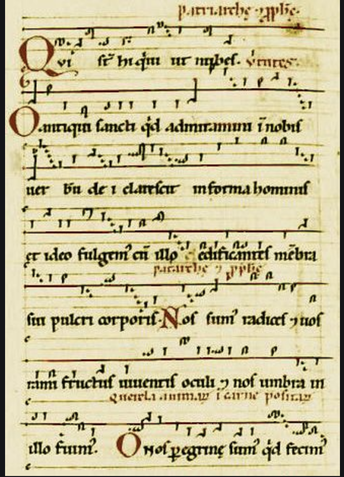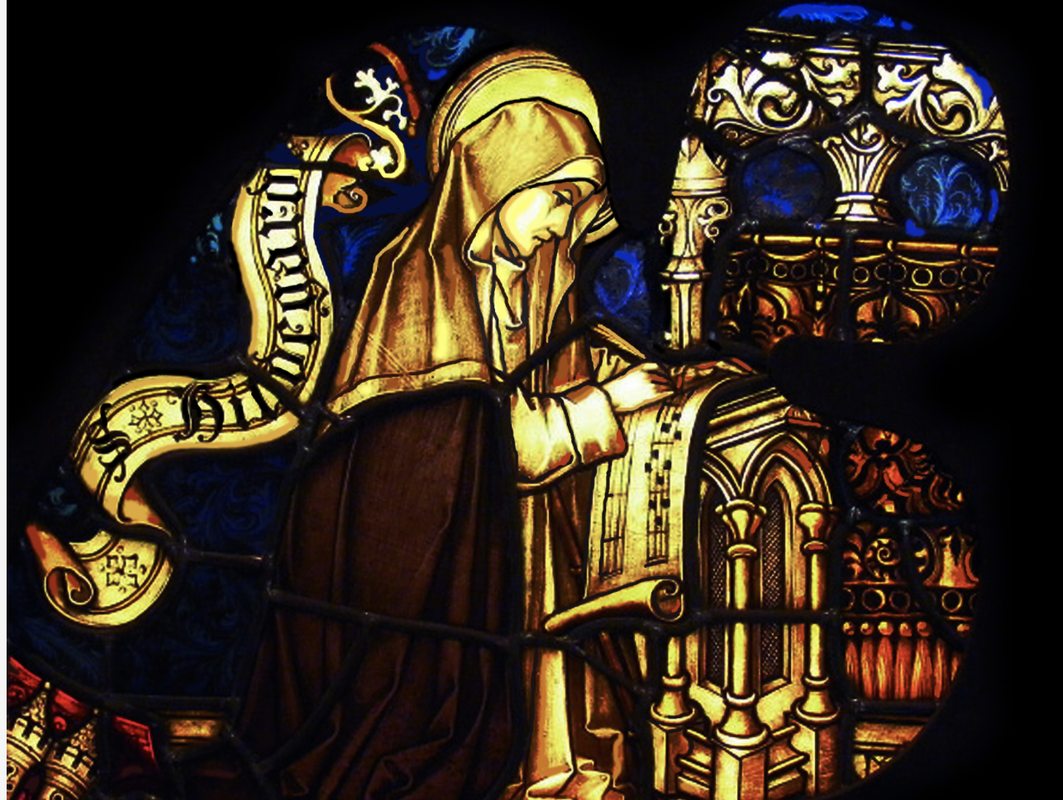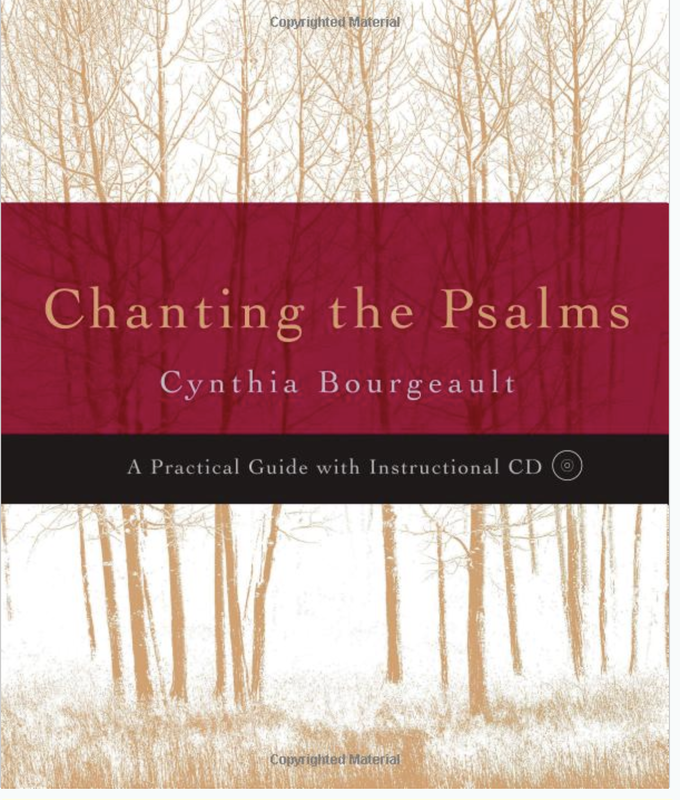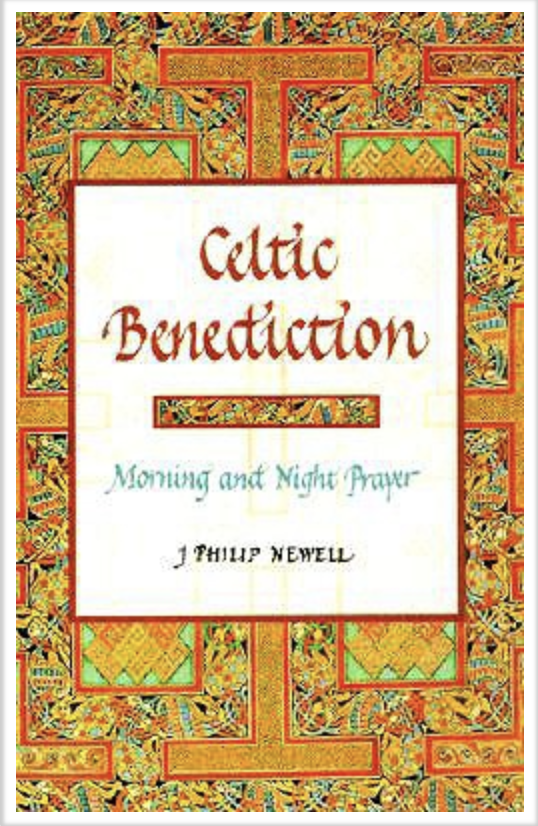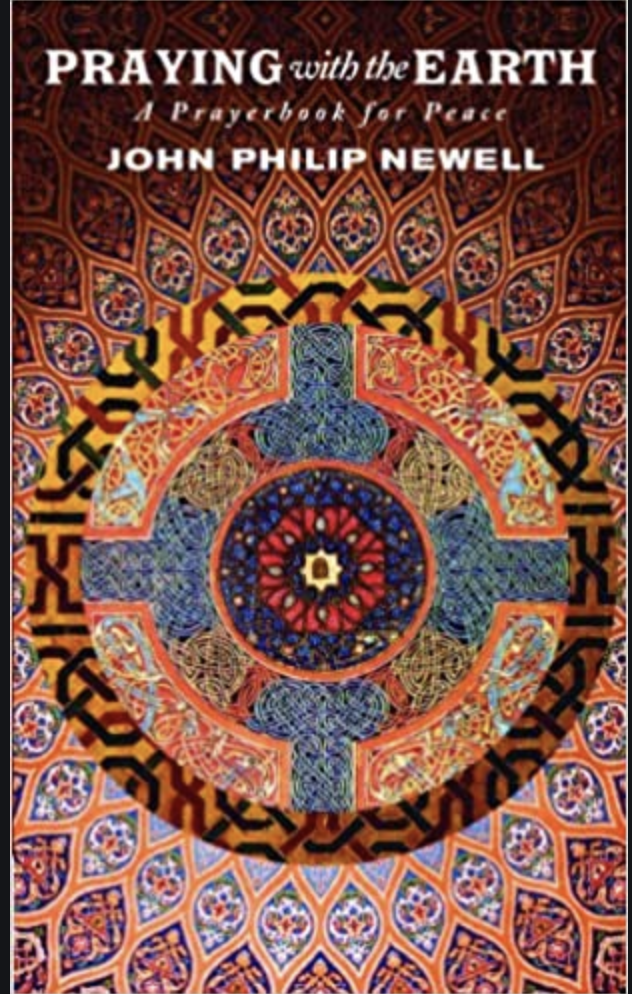Week Three: Music and Poetry in Benedictine Life
Watch the video of this session Here
HIldegard of Bingen lived her entire life from the age of 8 within the context of Benedictine spirituality. As such, every day was punctuated by eight periods of sung prayer, known as the "Divine Office". As part of this, there were songs associated with different times of day and different seasons of the liturgical year. The backbone of the music each week, however, was the psalter. Each and every week, all 150 of the Psalms were chanted antiphonally in plainchant. As paper was scarce and written music rare and precious, with the eventual goal that every monk or nun wold know these poems "by heart".
Almost all of Hildegard's music was written in connection to these psalms or expressly for use during liturgy. Antiphons were "preludes" sung before the psalm in accordance with special feast day celebrations; Hymns Sequences and Responsories were all part of the service of the mass.
Almost all of Hildegard's music was written in connection to these psalms or expressly for use during liturgy. Antiphons were "preludes" sung before the psalm in accordance with special feast day celebrations; Hymns Sequences and Responsories were all part of the service of the mass.
The greatest and most innovative composition of HIldegard's is the Ordo Virtutem. Widely honored now as the first proto-opera. it is a 60-90 minute musical drama that portrays the journey of the soul (Anima) as she encounters the temptation of the Devil. After a prologue sung by the male voices of the Patriarchs, seventeen virtues, led by Queen Humility, arrive to guide Anima back to the right road. As each Virtue steps forward, she sings about her identity (("Ego Caritas", for example: "I am Compassion") and offers a teaching. In response, the Virtues answer her back. The allegory was no doubt an incredible spectacle in the monastery: we have reports that the performing nuns were decked in jewels, velvet gowns, and crowns with white veils. Imagine all of that performed by oil lamp and torchlight in a stone chapel.
Hildegard's Virtues:
Humility (Queen of the Virtues),
Hope
Chastity
Innocence
Contempt of the World
Celestial Love
Discipline
Modesty
Mercy
Victory
Discretion
Patience
Knowledge of God
Compassion
Awe of God
Obedience,
Faith
Hildegard's Virtues:
Humility (Queen of the Virtues),
Hope
Chastity
Innocence
Contempt of the World
Celestial Love
Discipline
Modesty
Mercy
Victory
Discretion
Patience
Knowledge of God
Compassion
Awe of God
Obedience,
Faith
For an interesting scholarly article on Hildegard's virtues in the Ordo Virtutem, see this link: https://newprairiepress.org/cgi/viewcontent.cgi?article=1072&context=ksuugradresearch
Below is a modern staging of Ordo Virtutem filmed live at St. John's Church in Los Angeles using traditional instruments and performance practice.
There are several online sources for doing a version of the Divine (Daily) Office. Here are a few that differ quite a bit in language- some more traditional , others more inclusive. Most offer only morning and evening prayer- a very accessible way to get started in praying.
The Northumbria Community is a welcoming Celtic community in England. Click her to access their daily prayer www.northumbriacommunity.org/offices/how-to-use-daily-office/
Taize is an ecumenical community in France whose worship consists almost entirely of simple chants in multiple languages. On their website here, you can learn about this beautiful and nurturing place of pilgrimage and download their simple and lovely music to learn.
MIssion St,. Claire offers a traditional liturgy of Biblical readings, hymns and prayers every morning and evening.
Solesmes Abbey has been renowned for centuries for their chant. Learn more here.
The International Society of Hildegard von Bingen Studies is a very valuable resource for the music, including diverse recordings fo her music, texts and translations. Below is an antiphon performed by Anonymous 4.
Curious about learning to sing Hildegard's music? Devi Mathieu offers monthly "From the Ear to the Heart" classes, with no musical experience necessary. She will skillfully guide you in learning some of Hildegard's music through a process of meditative call and response. Click here to learn more and register
Contact Kayleen Asbo: [email protected]
